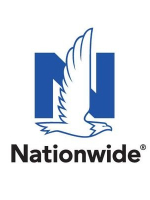04/05/2024 — Key takeaways:
- It’s estimated that by 2027, freelancers will make up over 50% of the U.S. workforce.
- Freelance and gig work clients often face unpredictable income flows, making it challenging to adhere to conventional financial planning.
- Traditional employer-sponsored retirement plans aren’t typically an option for freelancers. Clients instead can utilize SEP IRAs, Solo 401(k), or IRAs.
The freelance economy is booming, with more people than ever choosing the autonomy of self-employment over traditional 9-to-5 jobs.1 According to the Statista Research Department, it’s projected that by 2027, 86.5 million people will be freelancing in the United States and will make up 50.9% of the total U.S. workforce.2 This seismic shift in the workforce presents both opportunities and challenges, not only for freelancers, but also for financial professionals who must adapt their advice to meet the unique needs of clients with irregular income streams. In this blog, we’ll explore strategies you can use as a financial professional to help guide your freelance clients toward more stable and secure financial footing.
Budgeting with a buffer in mind
Freelancers and gig workers often face unpredictable income flows, making it challenging to adhere to conventional financial planning and budgeting advice. Without a fixed monthly paycheck, financial planning becomes a more complex puzzle to solve. These budgeting tips can help your clients ensure they have what they need to cover their expenses.
- Create a variable budget: one of the key strategies for managing irregular income is to develop a variable budget that can adjust based on income fluctuations. Encourage clients to categorize expenses into fixed and variable—ensuring basic needs are always covered.
- Build an emergency fund: a robust emergency fund can be crucial for freelancers. It acts as a financial buffer during dry spells of work or unexpected expenses. Depending on their situation, an emergency fund could cover three to six months’ worth of living expenses.
- Budget for low-income months: setting aside surplus income during higher-income months can be a helpful strategy to help supplement leaner ones. It helps to smooth out the financial waves of irregular income and provide more consistency throughout the year.
- Divide and conquer: you can teach clients to divide their income into multiple accounts designated for specific purposes—such as tax savings, retirement, emergency fund, and personal spending.
- Diversify income sources: if applicable in their line of work, you can encourage clients to diversify their client base and the types of projects they take on. This can help reduce reliance on any single source of income and potentially stabilize earnings.
Taxes and retirement
Tax strategies
Freelance and gig workers typically don’t have taxes withheld from their paychecks, which can lead to tax-time surprises. You can encourage your clients to file quarterly tax estimates and payments to avoid year-end shocks. Working with a certified tax professional can be crucial to strategize the best way to tackle taxes when self-employed.
Traditional employer-sponsored retirement plans aren’t typically an option for freelancers. Instead, these clients will need to pursue other options to build wealth and invest in their future. Some options include:
- Solo 401(k): sometimes called a Solo-k, Uni-k or One-participant k, is a traditional 401(k) plan that covers a business owner (and potentially their spouse) with no employees3 that may be a good option for qualifying freelancers.
- Simplified Employee Pension (SEP IRA): a simplified employee pension plan, or SEP IRA, allows self-employed clients to contribute as much as 25% of their net earnings in retirement accounts.
- Roth or Traditional IRAs: freelance clients can contribute to a Roth IRA or Traditional IRA. Roth IRA contributions are made on an after-tax basis, but qualified distributions from a Roth IRA in retirement are generally tax-free.
- Health Savings Accounts (HSAs): HSAs are another tax-advantaged account to use now or in retirement to pay for qualified medical expenses. There are options to invest the money in an HSA as well.
- Brokerage accounts: although brokerage accounts don’t provide tax savings, there are still advantages to using this to save money. Clients may appreciate the flexibility of easy access to funds, no contribution limits, and no investment restrictions offered by a brokerage account.
Health insurance
Lack of employer-provided health insurance for the self-employed can be a significant downside to freelance or gig work. There are a few options for people who aren’t provided employer-sponsored health insurance.
- Utilize a family members plan: In some cases, freelancers may be able to take advantage of their spouses or parents’ insurance plans, depending on their marital status and age.
- Enroll in marketplace coverage: Healthcare.gov can help your clients see if they qualify for marketplace coverage and search for individual healthcare plans. Your clients may be eligible if they lost qualifying health coverage, lost Medicaid or Children’s Health Insurance Program (CHIP) coverage, moved, got married, or had a baby.4
- COBRA: for clients who were previously employed with a company, they may qualify for healthcare benefits through COBRA, which allows workers to stay on their health insurance plan for a limited time.
The financial professional’s role
Freelancers benefit from more frequent financial check-ins compared to traditional employees due to their variable income streams. It could help client retention to offer a service tailored to their needs, like regular check-ins. Use the opportunity to educate freelancers about cash flow management, investment opportunities, and the tax implications of their business expenses. This information empowers them to make informed decisions.
Looking ahead
Financial professionals eager to accommodate the emerging freelance clientele must be willing to innovate and personalize their services. By understanding the nuances of freelancing finances, you offer a tremendous value to your clients. This sets you apart and establishes you as their go-to expert in navigating the waters of irregular income. Remember, your role as an advisor to freelancers is not only to impart wisdom but also to instill confidence. Empower them with the tools and strategies for financial stability and watch as they thrive in the gig economy.

